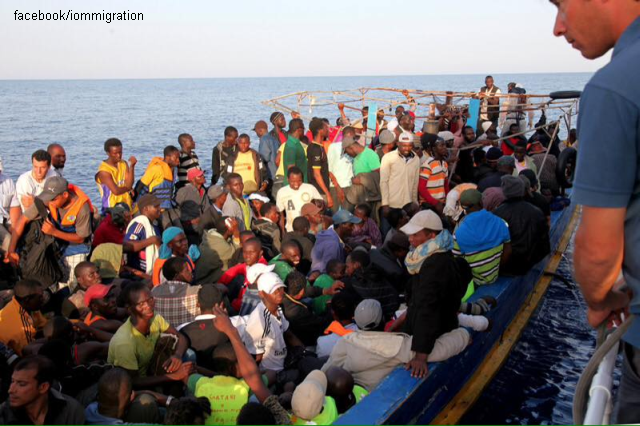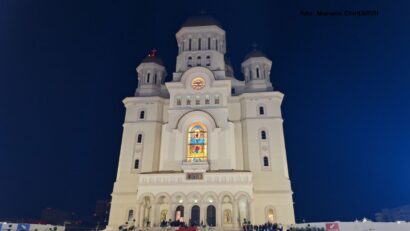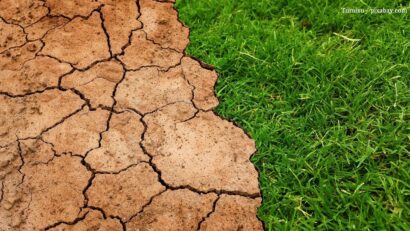The migrant crisis in Europe
Europe “will never turn away those who need protection, said the European Comission First Vice-President Frans Timmermans.

Corina Cristea, 04.09.2015, 12:26
Europe will
never turn away those who need protection, said the European Comission First
Vice-President Frans Timmermans, urging Member States to stay true to the
values of humanity in the face of what he called a global crisis. The statement
comes as Europe is facing the largest migrant inflow since WW2. Many of the
people trying to reach the West are fleeing war-torn countries like Syria and
Afghanistan.
The German
Chancellor Angela Merkel and the French President Francois Hollande jointly
called for a common EU asylum policy and urged Italy and Greece to establish
registration centres for newly-arrived migrants as soon as possible. The
establishment of these centres was agreed at the June meeting of the European
Council, but none has been set up so far. After talks with the French President, Angela
Merkel said these centres need to be created before the year-end in countries
like Italy and Greece, where most of the recent wave of migrants has arrived in
the EU. There are moments in European history
when we face exceptional circumstances, and these are exceptional circumstances
that will last, president Hollande also said.
Some
250,000 illegal immigrants from outside Europe have arrived in Europe since the
beginning of the year, which triggered an unprecedented humanitarian crisis.
Apart from people fleeing conflict areas such as the Middle East, there are
also people from African countries driven by hopes to find a better life in
Europe. They transit Libya taking advantage of the chaos in this country to be
able to cross the Mediterranean into Greece and Italy. Another way of reaching
Europe, which is used mainly by Syrians and Afghans, is to cross Turkey and
part of the Aegean Sea to reach the Greek islands. While Greece and Italy are
generally faced with illegal immigrants coming from outside Europe, Germany has
seen a massive inflow of refugees coming through the Balkans. According to some
estimates, the number of illegal migrants reaching Germany is to exceed 800,000
by the end of the year.
Historian
Dorin Matei told Radio Romania that Europe must join forces to find a solution.
He says that unfortunately the solutions identified so far are the same ones
that were used 1,500 years ago by the emperors of China and Rome, namely
building walls and fences. The Chinese emperors built the Great Wall of China,
while the Romans built Trajan’s Wall, today on Romanian territory, and
Hadrian’s Wall between England and Scotland. None of these measures worked, as
they only halted migration temporarily. Today, Europeans seem to be taken by
surprise by this migration wave, but hopefully they will come up with a
solution, otherwise things will become really complicated, says Dorin Matei.
For
the time being, Brussels has promised to help France cope with the people
trying to reach Britain and is considering giving Hungary migrant hotspot
status to help this country with migrant influx. This, however, depends on the
cooperation of all Member States, even those which are not directly affected by
this crisis. Radio Romania’s correspondent in Brussels, Cerasela Radulescu, explains:
The
European Commission First Vice-President Frans Timmermans, who visited the
refugee camp in the French port city of Calais, once again called for the
involvement of all 28 EU Member States, including those who are not confronted
with this problem. Timmermans said the Commission would support the frontline
states faced with mass migration by sending European staff to help with the
identification and registration of asylum seekers and sending home those who
are not eligible for asylum. The EU official also said it was necessary to
create a permanent mechanism for the distribution of asylum seekers, a
so-called relocation mechanism that could be activated whenever a crisis
occurs.
A
first high-level emergency meeting will take place in Brussels on September 14,
when EU interior ministers will discuss the immigration issue. Luxembourg’s
Immigration and Asylum Minister Jean Asselborn, whose country is currently
holding the EU rotating presidency, has called for this meeting in order to
assess the situation on the ground and the political actions in progress, and
to discuss new initiatives to consolidate the European response to the
migration issue. All these show that the European Union and its leaders are
fully aware of the unprecedented scope of this phenomenon.






























